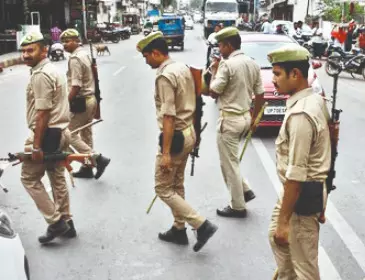Inside UP conversion gang: Codeword, safe zones and an organised recruitment network

Lucknow: Investigators probing a recently busted religious conversion racket have uncovered that the group used a covert codeword — “revert” — to describe individuals who had converted to Islam, a term used by members to denote ‘ghar wapsi’ or a spiritual return to their so-called original faith.
Interrogations by officials from the Uttar Pradesh Police, Anti-Terrorism Squad (ATS), and Intelligence Bureau (IB) reportedly revealed a highly organised structure through which conversions were carried out, often trapping young women and men through false promises and coercion.
Police have arrested 10 individuals so far, including six former Hindus who had converted and assumed Muslim names. Among them, SB Krishna became Ayesha, Rupendra Baghel turned into Abu Rehman, Manoj adopted the name Mustafa, Shekhar Roy was renamed Ali Hasan, and Piyush Singh Panwar assumed the identity Mohammad Ali. These individuals, investigators said, not only embraced new identities but also played active roles in persuading others to join the network.
“After conversion, many of them showcased their new identities on social media, proudly using the tag ‘Revert’ in profiles and posts,” said a senior police officer involved in the probe, adding that the police also traced several fake social media accounts linked to the racket.
The gang also allegedly helped individuals get new Voter ID and Aadhaar cards in Kolkata, enabling them to vote under their changed identities.
The conversion process was made to appear legal. After advertisements in local newspapers, the group would file petitions in court and get official papers made, followed by nikah (marriage). Once these legal steps were taken, returning to their families became almost impossible for the women involved, police sources said.
“Two sisters, for example, left home with just Rs 25,000 and some jewellery despite the gang advising them against bringing valuables. They first travelled to Delhi, then Muzaffarpur, and finally to Kolkata. There, they met a man named Osama, who arranged hotel accommodation and later rented them a room for Rs 30,000 via an agreement that also required them to pay Rs 6,000 per month,” the sources said. The area in Kolkata where they were housed, known as Tapsia, was referred to as a “safe zone” by the gang — a shelter for other converts undergoing religious instruction (Deeni Taleem), they added.
Investigators said several other young men and women were being kept in similar safe zones awaiting full conversion.
The gang’s strategy relied heavily on targeting adult women, as it helped bypass legal barriers. Adult women could appear in court claiming to have converted of their own free will, thus weakening any parental or legal opposition.
Police also revealed that these women were then used to recruit more people into the network — often from their own social or family circles.
The arrested suspects are currently on a 10-day police remand, and further interrogation is expected to reveal more links, including financial trails and digital footprints. Authorities are also probing the role of clerics and legal facilitators who may have helped in documentation and religious formalities.
A senior ATS official said: “We are looking into whether there is a larger interstate network involved. This appears to be an organised operation with a clear chain of command and support structure.” With the investigation underway, more arrests are likely follow.



